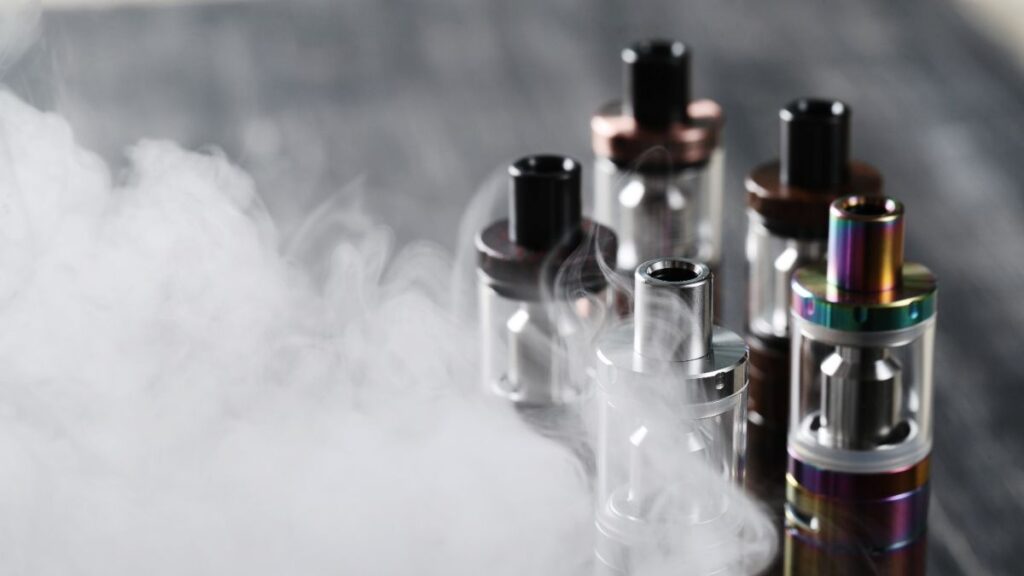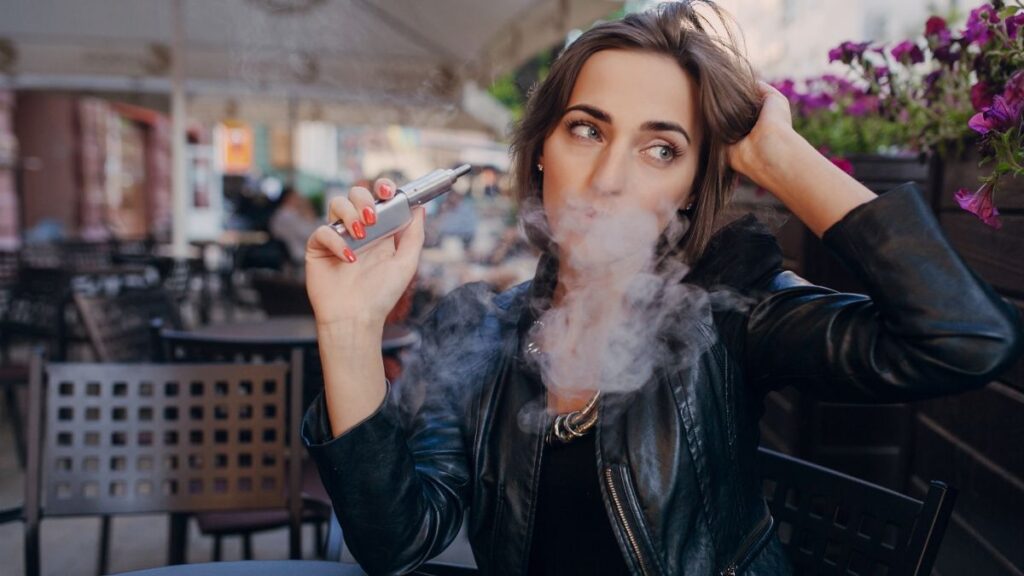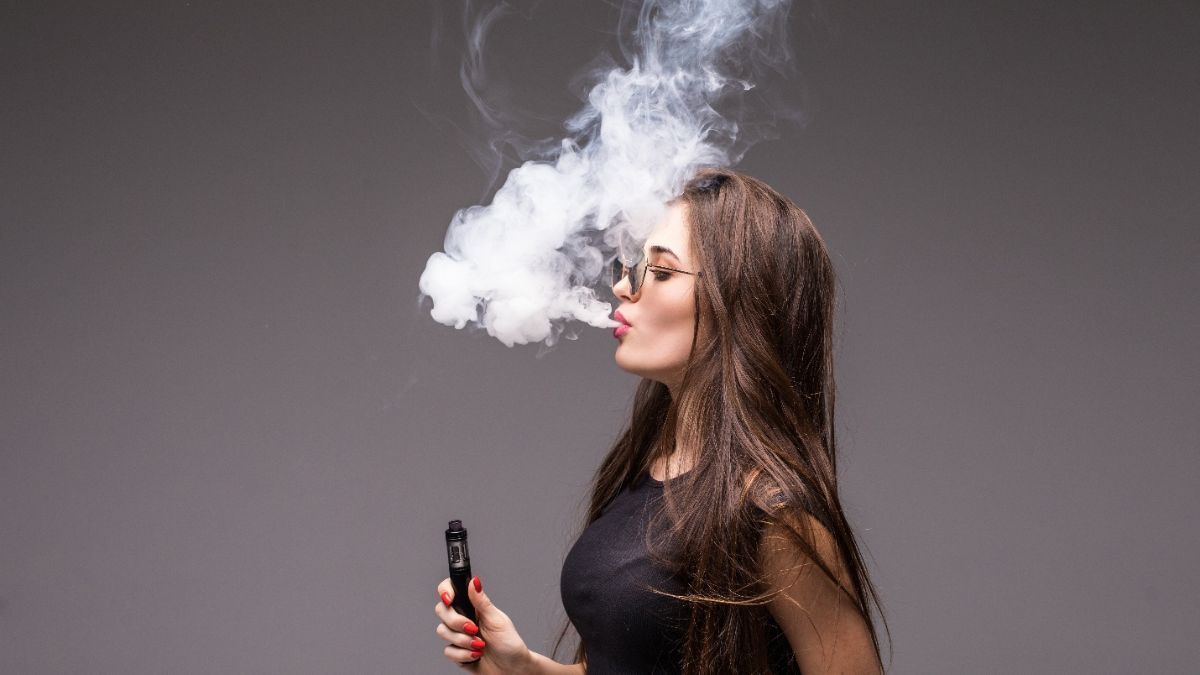Cannabis is generating excitement worldwide, and thanks to cannabidiol (CBD), it now has a more respectable public persona. Many people use it, including folks who never indulged in illegal substances and have no aspirations to start. The tide is changing in favor of CBD vaping as promising new evidence of hemp’s therapeutic potential emerges. However, the CBD market is young, and marijuana regulations worldwide continue to evolve as we distinguish CBD from THC. Despite its widespread use, there is a great deal of misunderstanding surrounding even the most fundamental features of CBD, such as what it is and whether or not it is legal to purchase, possess, or distribute.
Additionally, worldwide vaping policies are constantly evolving as many consumers utilize vapes as a less hazardous alternative to tobacco products. State governments are passing new marijuana laws and regulations, so your area of residence will significantly impact your ability to buy CBD products and consume them legally. Therefore, it is essential to understand which of these restrictions applies to you to consume the cannabinoid safely and legally. At AskGrowers, we are dedicated to having our customers feel safe and informed while using vapes and CBD products, so we’ve outlined some CBD and vaping rules to assist you in navigating this changing but fascinating market. Let’s see where you can purchase a CBD oil pen without legal trouble.
Marijuana and Cannabidiol – How Do They Differ?
Before venturing into the legal status of CBD, it is imperative first to understand how it differs from THC (tetrahydrocannabinol), its largely illegal counterpart. For quite some time, “cannabis” meant something more along the lines of “red-eyed and high,” but in the past few years, the medicinal properties of cannabidiol (CBD) have propelled hemp to the forefront of the health and wellness sector.
Hemp and marijuana are two distinct members of the cannabis plant family. Few consumers are aware of this distinction, but the chemical composition of the two plants indicates that they possess vastly different attributes. Hemp contains naturally low levels of THC and high levels of CBD, whereas marijuana contains naturally higher levels of THC.
THC is the component of cannabis that is known for the psychoactive “high” experienced by stoners. Simply put, THC causes intoxication, while CBD promotes health. Cannabidiol does not have an intoxicating effect, and the World Health Organization (WHO) has noted that it is well-tolerated by the body.

Vaping in America
The American vaping crisis, in which unregulated e-liquids sold on the black market were linked to unexplained diseases and several deaths, gave birth to new regulations for vaping products sold in the United States. All vape manufacturers were required by federal liability to apply to the Food and Drug Administration (FDA) by May 2020, along with proof that the items they manufacture are safe for consumption by the general population. There are also continuing discussions regarding the prohibition of flavored e-liquids, which are believed to attract younger consumers.
As a result of contemporary smoking legislation, several states have banned the use of vaping devices in enclosed environments. Nebraska, Nevada, Rhode Island, and Tennessee are states where vaping is unregulated indoors. Several states adopted a prohibitionist posture toward vaping during the vaping crisis, which has since been lifted. Thus, it is necessary to check with the relevant authorities in any area to determine the specific restrictions.
With the new regulations, e-liquids are prohibited from containing vitamin E acetate, which is linked to lung damage and vaping-related diseases. Some jurisdictions, such as Massachusetts and Rhode Island, still restrict flavored e-liquids, but the ban does not apply to CBD-infused e-liquids. Overall, states concur that stricter regulations of e-liquids are preferable to explicit bans.

State-by-State CBD Legalization
These complexities make it difficult to answer whether it is legal to sell CBD, and the laws regarding CBD possession and use are similarly multifaceted. It depends on your residence; different states have varied CBD rules and regulations. This variation is detailed in the table below.
| STATE | CANNABIS LEGAL STATUS | ADDITIONAL DETAILS |
| Alabama | Conditionally legal | CBD oil exceeding 0.3% THC is legal with medical cannabis license for specific conditions |
| Alaska | Fully legal | – |
| Arizona | Fully legal | – |
| Arkansas | Conditionally legal | Cannabis-derived CBD oil exceeding 0.3% THC is legal with medical marijuana license for specific illnesses. |
| California | Fully legal | Hemp-derived CBD edibles are not legal in the state, but cannabis-derived CBD edibles are; it doesn’t seem to be strictly enforced, and legislation has been proposed to remove this restriction. |
| Colorado | Fully legal | – |
| Connecticut | Fully legal | – |
| Delaware | Conditionally legal | Cannabis-derived CBD oil is legal for adults and minors under 18 with a medical cannabis license. |
| District of Columbia | Fully legal | – |
| Florida | Conditionally legal | Only hemp-derived CBD products under 0.3% THC content are considered legal |
| Georgia | Conditionally legal | Cannabis-derived CBD oil is legal with medical cannabis license for specific conditions; it must contain equal amounts of THC and CBD, and THC content cannot exceed 5% |
| Hawaii | Conditionally legal | Hemp-derived CBD oil is considered legal; cannabis-derived CBD oil is regulated exclusively by residents with a medical cannabis license. |
| Idaho | Conditionally legal | All varieties are legal so long as there is no traceable THC content |
| Illinois | Fully legal | – |
| Indiana | Conditionally legal | All varieties are legal so long as they do not exceed 0.3% THC |
| Iowa | Conditionally legal | Cannabis-derived CBD oil exceeding 0.3% THC is legal with medical cannabis license; the list of accepted conditions is fairly restrictive. |
| Kansas | Conditionally legal | All varieties are legal so long as there is no traceable THC content; medical CBD oil is legal with a license for specific medical conditions as long as the THC content doesn’t exceed 5% |
| Kentucky | Conditionally legal | Hemp-derived CBD oil only |
| Louisiana | Conditionally legal | Cannabis-derived CBD oil is legal with medical cannabis license, and any product containing more than 0.5 milligrams of THC must be declared for “adult use” on the label. |
| Maine | Fully legal | – |
| Maryland | Conditionally legal | Cannabis- and hemp-derived CBD oil are now legal, but vendors may require consumers to be at least 21 years old to purchase |
| Massachusetts | Fully legal | Oil with THC content exceeding 0.3% is fully legal for adults aged 21 and up and for adults 18 to 20 with a medical cannabis license. |
| Michigan | Fully legal | – |
| Minnesota | Conditionally legal | Cannabis-derived CBD oil is legal with medical cannabis license for specific conditions; it allows the sale of edible products containing CBD so long as they’re accurately labeled and contain less than 0.3% THC. |
| Mississippi | Conditionally legal | Cannabis-derived CBD oil is legal with medical cannabis license, a limited number of accepted conditions must be obtained from the University of Mississippi, and it cannot exceed 0.5% THC. |
| Missouri | Conditionally legal | CBD oil exceeding 0.3% THC is legal with medical cannabis license (no qualifying conditions) |
| Montana | Fully legal | – |
| Nebraska | Conditionally legal | Hemp-derived CBD oil only; cannabis is illegal even for medical purposes |
| Nevada | Fully legal | – |
| New Hampshire | Conditionally legal | Cannabis-derived CBD oil is legal with medical cannabis license for specific conditions. |
| New Jersey | Fully legal | – |
| New Mexico | Conditionally legal | Cannabis-derived CBD oil is legal with medical cannabis license for specific conditions. |
| New York | Fully legal | – |
| North Carolina | Conditionally legal | Cannabis-derived CBD oil is legal for users with a medical cannabis license; however, the program is limited to a small subset of study participants and patients suffering from specific conditions. |
| North Dakota | Conditionally legal | Cannabis-derived CBD oil is legal with medical cannabis license for specific conditions. |
| Ohio | Conditionally legal | CBD must be derived from hemp and shouldn’t exceed 0.3% THC; cannabis-derived CBD oil legal with medical cannabis license for specific conditions |
| Oklahoma | Conditionally legal | Hemp-derived CBD oil is legal with medical cannabis license (no qualifying conditions) |
| Oregon | Fully legal | – |
| Pennsylvania | Conditionally legal | CBD oil exceeding 0.3% THC is legal with medical cannabis license for specific conditions |
| Rhode Island | Conditionally legal | CBD oil exceeding 0.3% THC is legal with medical cannabis license for specific conditions |
| South Carolina | Conditionally legal | CBD oil exceeding 0.9% THC is legal with medical cannabis license; very restrictive list of qualifying conditions |
| South Dakota | Conditionally legal | Legal to sell, buy and carry hemp-sourced CBD oil and other hemp-derived CBD products containing less than 0.3% THC, but cannabis-derived CBD oil remains illegal |
| Tennessee | Conditionally legal | Stricter laws coming into effect in 2024 that make it illegal to sell CBD to anyone under the age of 21; CBD oil exceeding 0.9% THC is legal with medical cannabis license, but a very restrictive list of qualifying conditions |
| Texas | Conditionally legal | Low-THC (up to 1%) CBD oil available for patients with qualifying conditions |
| Utah | Conditionally legal | Cannabis-derived CBD oil is legal with medical cannabis license for specific conditions. |
| Vermont | Fully legal | – |
| Virginia | Fully legal | – |
| Washington | Fully legal | – |
| West Virginia | Conditionally legal | Cannabis-derived CBD oil is legal with medical cannabis license for specific conditions. |
| Wisconsin | Conditionally legal | Cannabis-derived CBD oil is legal with medical cannabis license for specific conditions. |
| Wyoming | Conditionally legal | Legal as long as it contains no more than 0.3% THC |
Conclusion
Even with these rules, CBD approval is still a big deal. The cannabis and CBD industries require regulatory certainty for ingestible products to prevent illegal CBD products from reaching retail shelves. While this regulatory framework is being developed, the FDA works on enforcement policies to halt all illicit manufacturing and distribution of vaping products. Thus, CBD legality policies will likely keep changing and fluctuating until stability is achieved.
The author of this article is Denys Svirepchuk, an expert in cannabis industry regulations and a blogger at AskGrowers, educating the public about the ins and outs of CBD consumption. Denys has fallen in love with the CBD health value in college. He has been working on consumer awareness and education since then, sharing his insights and observations on the numerous therapeutic applications of this cannabinoid.











